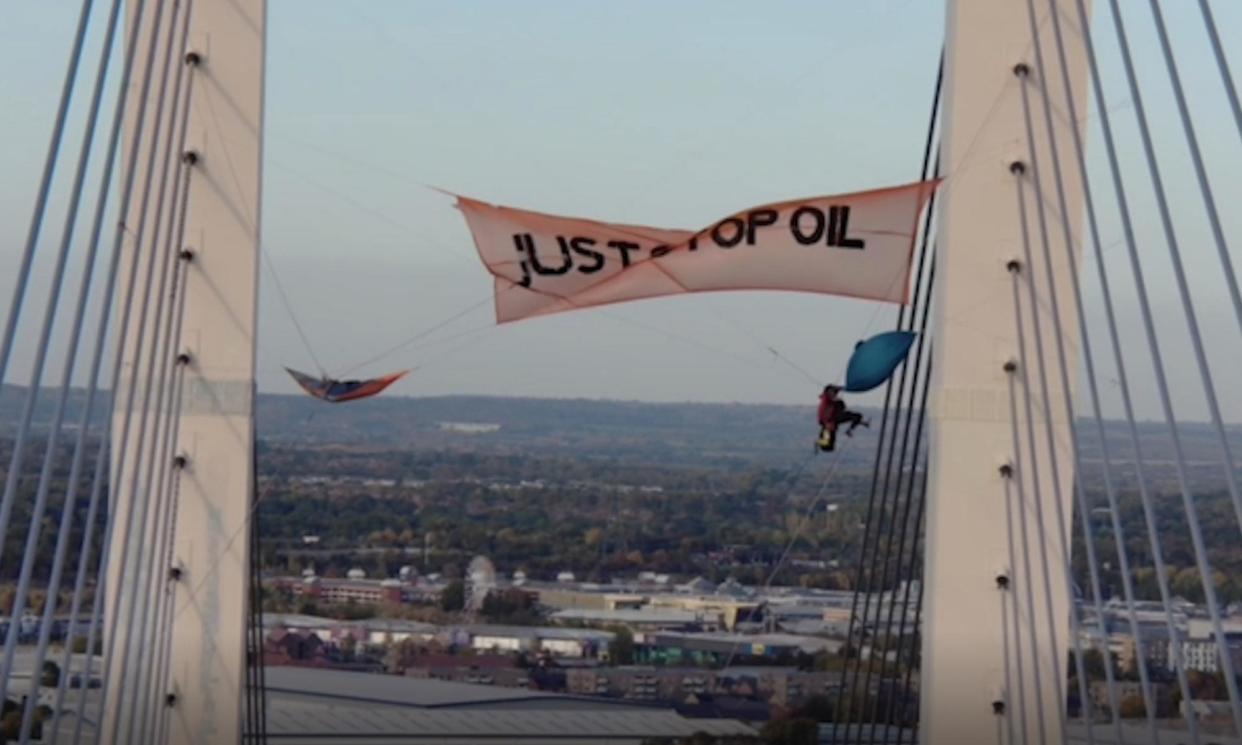Five examples of the UK’s crackdown on climate protesters

The UN special rapporteur on environmental defenders Michel Forst has said the UK’s crackdown on climate protesters is chilling, regressive and a restriction on fundamental freedoms.
We look at some of the cases:
Defendants on trial for peaceful protest were forbidden from mentioning the words climate change, fuel poverty or the civil rights movement when they were on trial for public nuisance. Several people, including a social worker, David Nixon, and the Dorset councillor Giovanna Lewis, were jailed for contempt of court when they defied the restrictions to explain their motivations for taking action to the jury.
A retired social worker, Trudi Warner, is being prosecuted for contempt of court for holding up a sign outside a court defending the right of juries to decide a case on their conscience. The decision to prosecute was made by the then solicitor general Michael Tomlinson KC, a minister and the Conservative MP for Mid Dorset and North Poole.
Stephen Gingell, 57, was jailed for six months after pleading guilty to taking part in a peaceful slow march protest on a London road. The sentence is thought to be the first jailing under the Public Order Act 2023, which includes an offence of “interference with key national infrastructure”. Gingell is appealing.
Civil injunctions have been issued to hundreds of individuals. National Highways has injunctions covering 4,300 miles of motorways and major A roads. Anyone who breaches this injunction faces imprisonment and/or an unlimited fine. Any corporation can apply for a civil injunction, and individuals can be punished without a trial.
Marcus Decker and Morgan Trowland made history as the peaceful protesters who have received the longest jail sentences in modern history in the UK when they were sentenced to two years and seven months, and three years respectively for public nuisance. They climbed the Queen Elizabeth II bridge over the Dartford Crossing and unveiled a banner for Just Stop Oil in 2022. The longest jail term issued to the suffragettes was three months.


